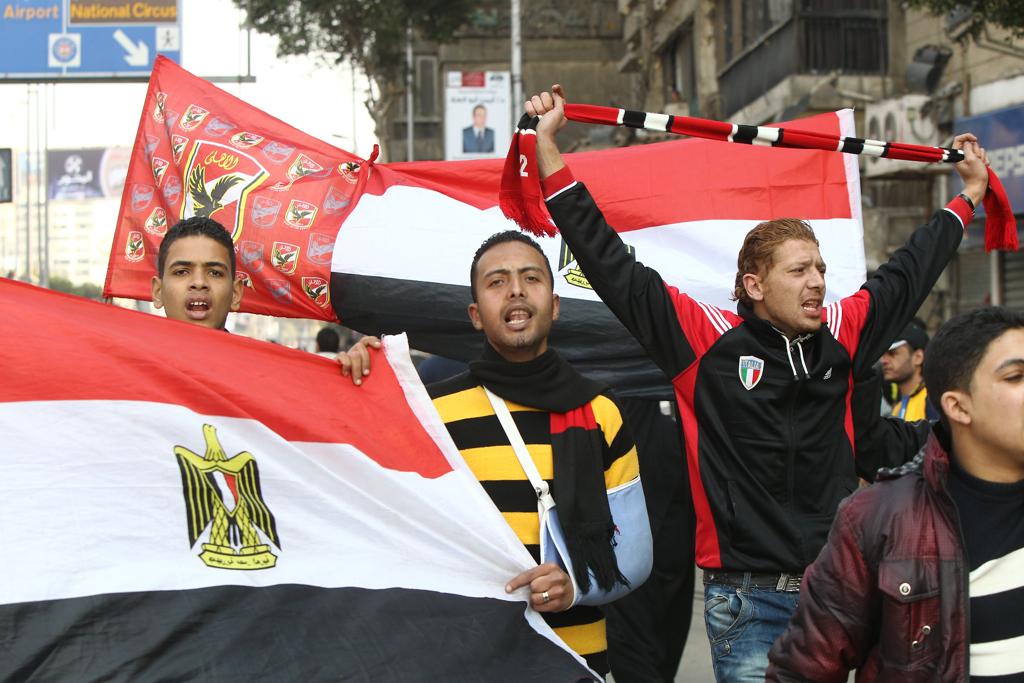Egypt clashes erupt over need for police reform
Egyptian fans of Al-Ahly take part in a demonstration in Cairo on Feb. 2, 2012 against the previous day’s clashes after a football match.
CAIRO, Egypt — Clashes between police and protesters angry over last night's deadly violence at a soccer game outside Cairo have erupted at the interior ministry near Tahrir Square. Security forces are firing tear gas at rock-throwing protesters, according to witnesses. The scenes are reminscient of a week of clashes between demonstrators and police on the same streets last November.
It's unclear who fired the first shot. Thousands of protesters, many of them football fans known as "Ultras," descended on downtown Cairo following the deaths of more than 70 people at a soccer match in Port Said last night.
The Ultras, who support the Cairo-based Al-Ahly soccer team — and who have been at the forefront of anti-police protests since the uprising against President Hosni Mubarak a year ago — say police stood by and watched as they were attacked by hoards of armed rival fans at the stadium in Port Said.
Since the revolt that began last January, the police have more or less withdrawn from the street and public spaces. Many say it's an act of retribution against a population that burned their stations and forced a retreat at the peak of the uprising. Police officials say their forces face record-low morale, and do not want to be blamed for more deaths.
More from GlobalPost: Fanatical about football, superstars at squash
Wednesday night's soccer riot emphasized more than ever Egypt's struggle with security sector reform in the post-uprising period. Decades of police brutality, including torture, were a key catalyst for the revolt that toppled Mubarak. Since then, almost no measures have been taken to restructure, reform or address the role of the police, who were trained to only respond with brute force, security experts here say, on Egypt's streets.
Last night's massacre — where police chose not to respond, did not possess the right level of morale to forcibly stop the mob, or facilitated the attacks, as some have charged — indicate as such.
But as many fed up with Mubarak-style military-rule here say, the police are unlikely to be punished for their involvement in any of the above scenarios. (Only one police officer has been convicted for his role in killing unarmed protesters during last year's uprising, when more than 800 were killed).
Port Said's police chief was sacked today by the minister of interior, and a new one was appointed.
More from GlobalPost: Egypt revolution: What will happen on the first anniversary?
Some members of parliament, at an emergency session held to discuss the crisis on Thursday, accused the minister of interior of being unable to secure the country. But there is little chance that the people's assembly, which so far has few real powers, can take on Egypt's well-established security forces.
That's most likely why the activists are back at the interior ministry in downtown Cairo now. And police are responding, again, with tear gas and rubber bullets.
We want to hear your feedback so we can keep improving our website, theworld.org. Please fill out this quick survey and let us know your thoughts (your answers will be anonymous). Thanks for your time!
